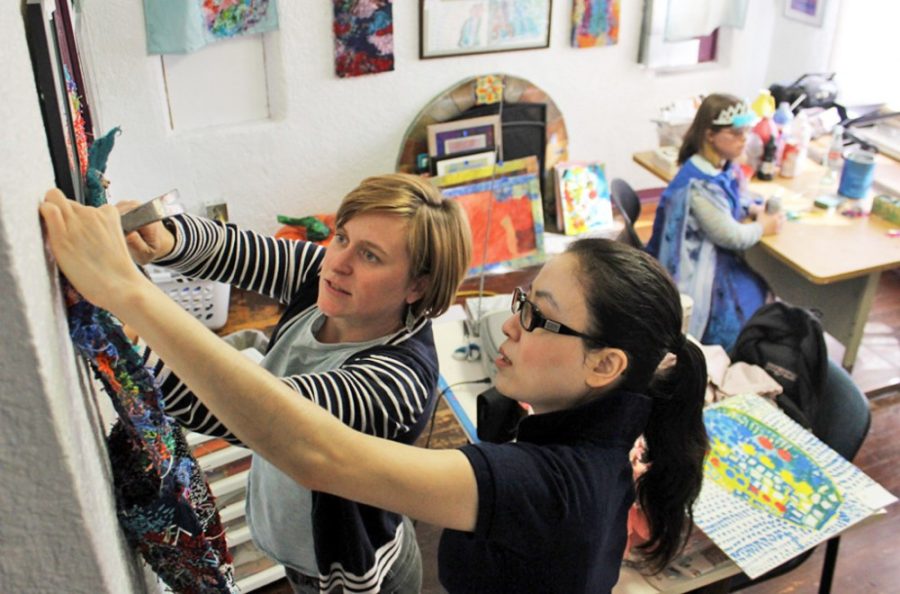The University of Arizona, in conjunction with Arizona Governor Doug Ducey and the other two Arizona state universities, have developed an initiative called Arizona Teach Academy. The Academy is an effort to address the teacher shortage plaguing the state’s schools.
Through the Arizona Teachers Academy program, the UA’s College of Education covers qualifying students’ tuition, easing the financial burden.
To qualify for scholarships from the Arizona Teachers Academy, interested students must already have a bachelor’s degree and must apply to the College of Education’s Teach Arizona or the Master of Arts in Special Education program.
Both are one-year master’s degree programs that provide students with a teaching certification. Teach Arizona certifies students to teach secondary education, grades 6 to 12, while the special education program certifies students to teach students with mild to moderate disabilities.
At the UA level, this plan was put together by the College of Education and Provost Andrew Comrie. It was implemented immediately, so students who were enrolled in Teach Arizona, the special education program and had already paid their tuition for the fall semester were reimbursed.
According to Barry Roth, director of Teach Arizona, the Academy addresses the statewide teacher shortage but does not solve the issue. The real concern isn’t in recruiting teachers, Roth said; it’s in keeping teachers in the classroom and fixing working conditions for them. And that includes pay rates.
“I just read an article that said teacher pay — elementary teacher pay — in Tucson is the lowest in the country,” Roth said, adding that secondary education teachers’ salaries aren’t adequate either.
RELATED: Column: Teachers deserve higher pay
“Teacher pay in Arizona is abysmally low; in Tucson it’s particularly so,” he said.
Another obstacle for teachers is what is in the “deep professionalization” they face.
“So here you have these highly educated, highly trained, highly committed people who are not given an opportunity to do what they’re trained to do. Instead, they’re fulfilling mandates. They’re doing paperwork,” Roth said. “So you have the educators who are enormously frustrated because they are not allowed to do their magic.”
Still, Roth hopes the academy will get people thinking about education and how to fix the current problems, especially on the state legislative level.
Bruce Johnson, the Dean of the College of Education, also finds that, while it is not the absolute solution, helping students afford the education required to become a teacher is a good way to start.
“Teachers in the state are not paid well, so it’s really difficult for people who want to become teachers to have to pay the debt they might have to go into. Anything we can do to alleviate that concern is great. We support that idea, and we’re all in favor of being able to help these students to afford to become teachers,” Johnson said.
While teaching can be a difficult job, Johnson doesn’t want passionate students to be discouraged, because there are people that care about education.
“I want to emphasize that, even though we do have issues with teachers being professionalized and not valued with low teacher pay, it’s actually a good profession to be into,” he said. “We have some incredible teachers in Arizona and Tucson, and some of them are battling some tough situations, and it’s remarkable that they’re still doing good work, and we have to step it up in how we support them.”
One of the the students benefiting from the Arizona Teachers Academy is Charisse White, who is in the master’s program at the UA’s Chandler Campus.
The program is helpful for people like White who want to enter the field of teaching after switching careers or who are attending grad school after getting their bachelor’s degree.
RELATED: Tatted up teachers: Freedom of expression or unprofessional?
White said she was hesitant to pursue her master’s because she was afraid of the additional debt she would accrue, especially since teachers’ salaries are low.
“So now having that scholarship put a huge weight off of my shoulders, and I can now focus more on my academics while I’m going to this program, as opposed to stressing about [debt],” White said.
White said the academy will allow students who want to teach to do so without having to worry about falling into debt.
“They’re able to really follow their passions and teach to the best of their desires and not have to worry about taking $20,000 to $40,000 of debt,” White said.
In the future, White would like to teach students in underprivileged communities and help them learn that they can go to college despite the obstacles they many encounter.
As a single mother working a full-time job while studying full-time, White wants to show her students that they can pursue an education if they want it bad enough.
“I want to be able to show that it’s not an easy path but it’s definitely possible, and if you don’t fight for it for yourself then no one else will,” White said.
Follow Melissa Vasquez on Twitter








